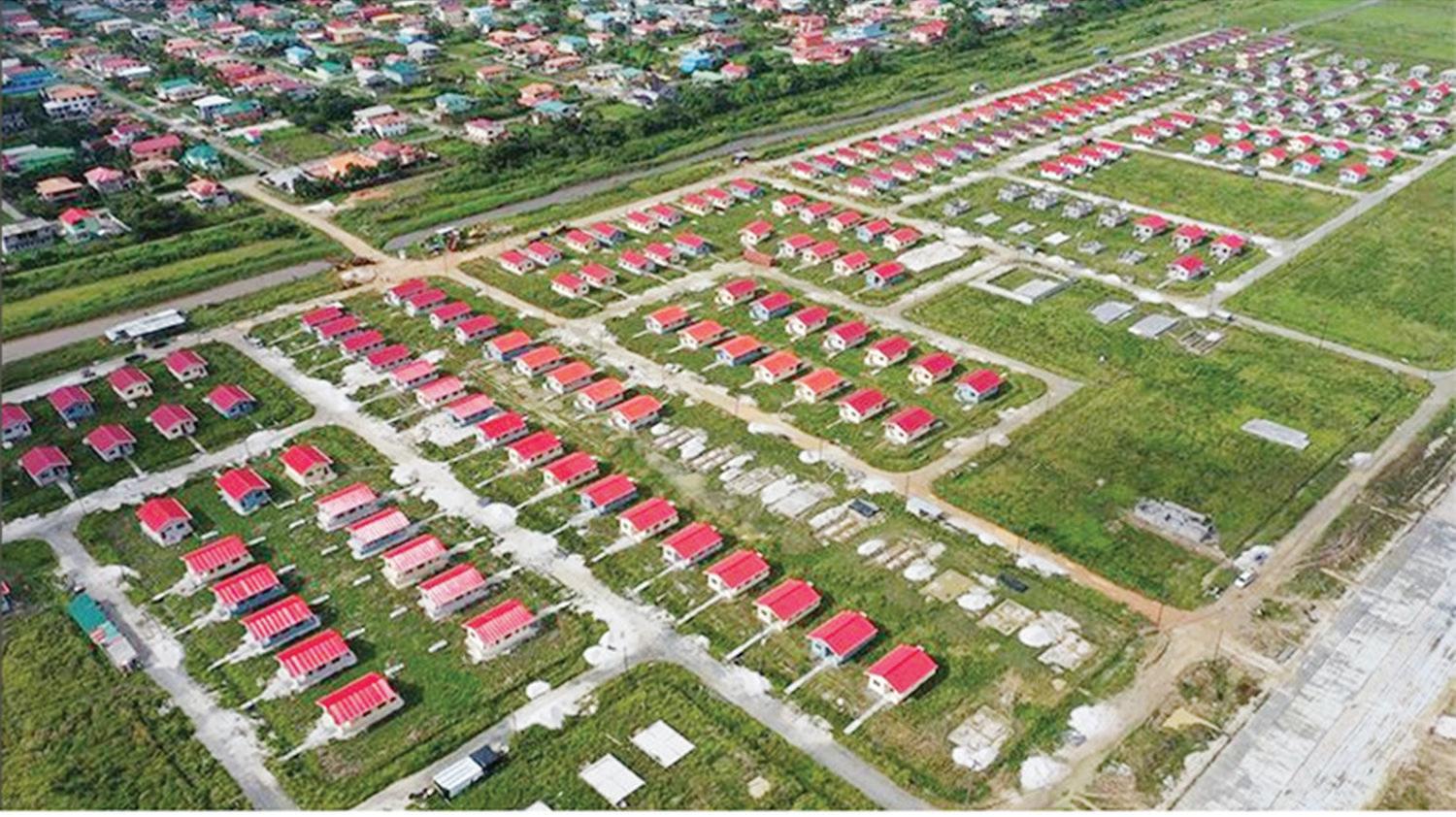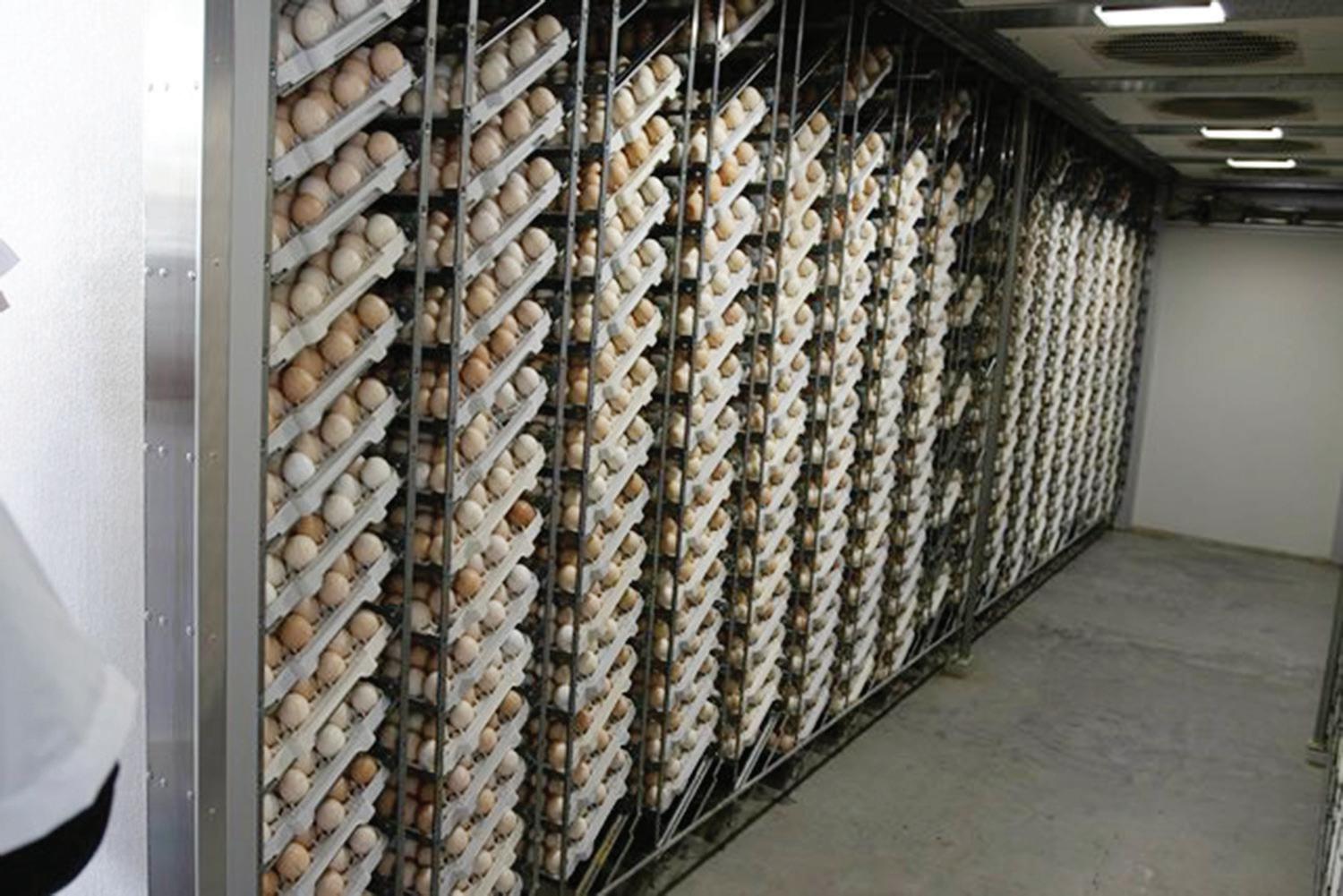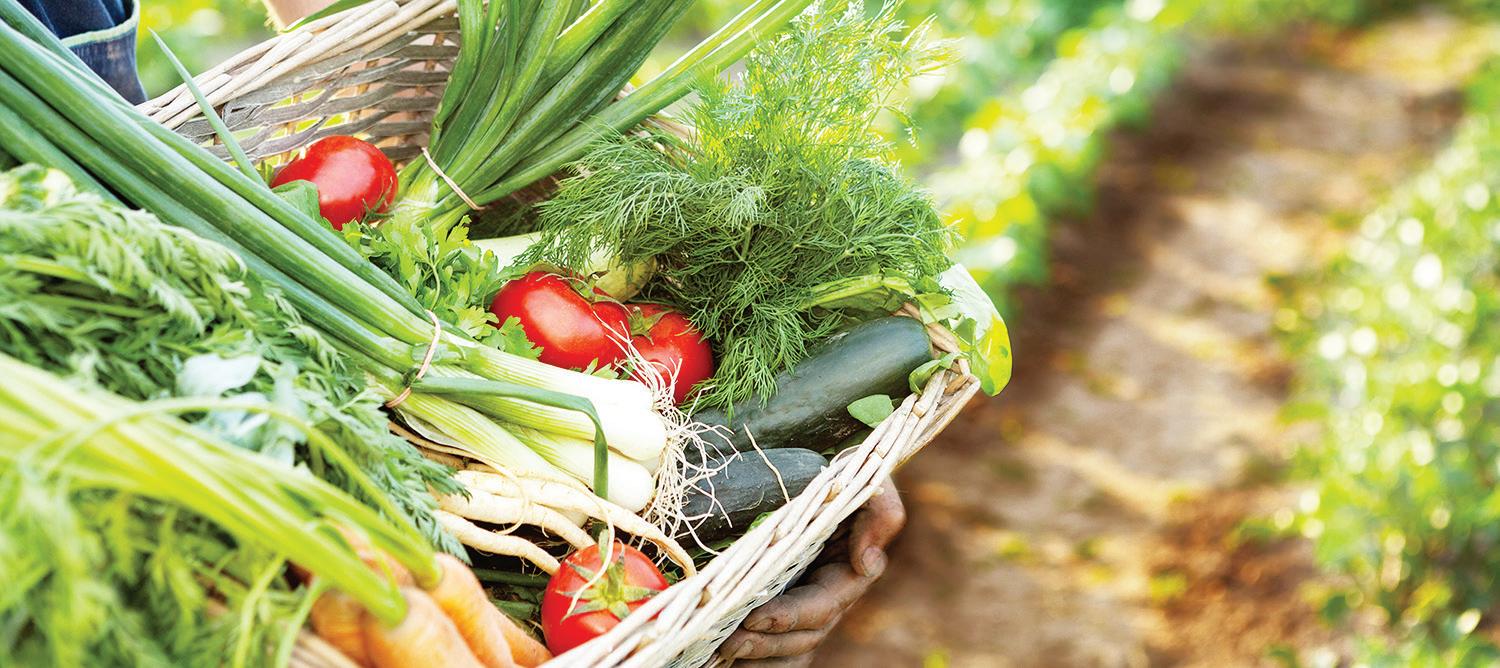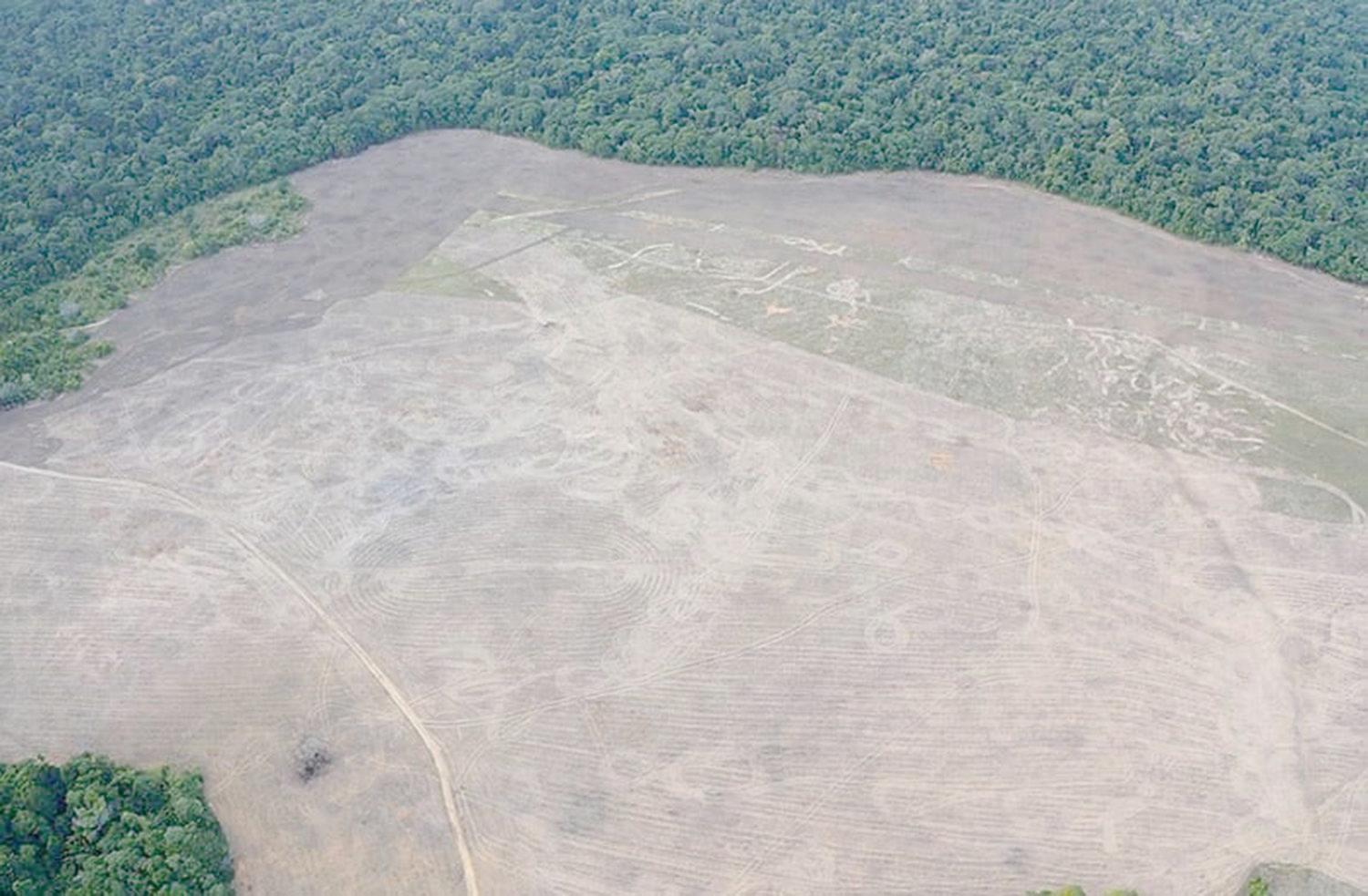


- Guyana poised to become South America’s leading oil, gas hub - $200B injected in housing sector from 2020-2024 - Earnings from export of non-traditional crops top $900M




- Guyana poised to become South America’s leading oil, gas hub - $200B injected in housing sector from 2020-2024 - Earnings from export of non-traditional crops top $900M
GENERAL Secretary of the People’s Progressive Party (PPP), Dr. Bharrat Jagdeo has set the record straight and maintained that the gas-to-energy project is on schedule.
This comes as a direct response to a Reuters’ article, headlined: “Guyana gas-topower project to shave weeks off oil output, hit revenue”, and the Opposition’s sudden hysteria over this piece.
During a press conference at the party’s headquarters recently, the PPP General Secretary extensively emphasised how the project will better the lives of all Guyanese.
He said that the project has several components, the first being the pipeline; the
second, building of the Power Plant and the Natural Gas Liquids (NGL) facility; thirdly, the transmission main to move the power to the control centre; fourthly, the control centre, and, fifthly, the upgrade of the transmission and distribution system.
“So, five separate components that will make this a major project that will solve our electricity needs for long into the future; prepare us for an industrial era and a modern era for supply of power,”
Dr. Jagdeo said. He further related that the gas-to-energy project was started “from scratch”, as the government was examining ways in which they could give the country a cheaper
form of fuel.
As to why Wales, West Bank Demerara (WBD) is the most feasible location as opposed to Palmyra, East Berbice-Corentyne, Dr. Jagdeo explained that the latter has more “swampy conditions” and would have caused problems.
Additionally, the generation of power was tabled as another element in the creation of the gas-to-energy project.
According to Dr Jagdeo: “If you include the price of gas, it will probably be about six or seven cents, but gas is free. So, what will it take for us to pay back for this whole project? It came up to about four US cents per kilowatt

hour, considering now we are generating at over 20 cents per kilowatt hour.”
He stated that the project will save the country a minimum of US$100 million per year.
The first element of the project was setting aside funds for the pipeline, and according to him, a billion dollars was set aside for the pipeline, and that included the upgrading of the roads to get to the site, the material offloading facility, a site preparation for 100 acres and included a laydown yard.
“So, the completed project, as per contract,” he said, “is end 2025. That is the completed project; the end of the project has not shifted.” But, according to him, the delay is as a result of a late handover by Exxon’s contractors that were responsible for the pipeline laying aspect.
Furthermore, he raised the subject of liquidated damages if the project is not completed on time.
“If they don’t complete the project on time, it is over US$11 million per month
they have to pay in liquidated damages for delay on the project,” Dr. Jagdeo said.
He further deflated the argument that ExxonMobil’s Floating Production Storage and Offloading (FPSO) vessel connection will result in a loss of four weeks of production, and said that this was already taken into account and that it should only take two weeks.
The PPP’s General Secretary said: “Our estimate with Exxon given to us is two weeks. So, each of these FPSOs would have to be shut down for two weeks to connect the pipeline…this was taken into account in our forecast for the revenue for this year…this was considered right from the beginning.
“They are hoping to bring forward maintenance for that period on the FPSOs for the period when they have to shut them down to make the connection.”
He added that ExxonMobil is looking to alter its maintenance plan to run simultaneously with this timing.
The project, which in -
volves laying a 200km, 12inch diameter pipeline, will channel natural gas from the Liza Phase One and Phase Two FPSO vessels to a stateof-the-art power plant and Natural Gas Liquids (NGL) facility in Wales.
Esso Exploration and Production Guyana Limited (EEPGL), along with its co-venturers in the Stabroek Block, are behind the pipeline’s construction, which has an estimated cost of US$1 billion and is cost recoverable.
The Government of Guyana has earmarked $80 billion in the 2024 budget for the project, highlighting its significance to national development.
The conversion of natural gas from ExxonMobil’s offshore operations to electricity is a key component of the People’s Progressive Party/Civic (PPP/C) government’s objective to lower energy costs by at least 50 per cent through an energy mix which incorporates gas, solar, wind, and “hydro” power.

IDB-Invest signs US$25M agreement with Redstart/Unicomer for new commercial complex at Farm – to create over 100 jobs, provide spaces for 30 businesses
AS the government continues to foster an environment that is conducive to business and investments, Senior Minister in the Office of the President with Responsibility for Finance and the Public Sector, Dr. Ashni Singh, on Monday, oversaw the signing of an agreement between the Inter-American Development Bank’s Private sector arm-IDBInvest and Redstart Guyana.
The simple signing ceremony which took place at the Ministry of Finance, was witnessed by both IDB and Ministry of Finance officials.
The agreement is to the tune of US$25 million and will allow for the construction of a commercial complex at Farm on the East Bank of Demerara.
Dr. Singh, during his remarks at the ceremony, congratulated the IDB Group and Unicomer on its partnership, noting that it sends a very clear signal to the rest of the private sector operating in Guyana that financing raised through IDB-Invest is a very viable and doable prospect for them.
The finance minister related that from 2020 to date, the value of financing approvals by IDB-Invest for development projects in the country’s private sector totals US$173 million. He added that the government welcomes this significant investment by Unicomer, pointing out that it is a tangible and visible demonstration of confidence in Guyana’s economy.
The finance minister then also lauded the IDB for its continued expression

of confidence in Guyana, and commitment to supporting the country’s private sector to expand and invest in several projects as the country continues on its rapid economic development trajectory.
“This investment comes at yet another key juncture in Guyana’s economic history, at a time when our economy is growing more rapidly than almost any other economy around the world; at a time when more Guyanese are in work from any other time previously in our country’s history; at a time when more Guyanese are earning higher levels of disposable income and acquiring their own homes through our Government Housing Programme and seeking to furnish those homes, and, therefore, are in a position to even more fully avail themselves of
the goods and services that will be provided by companies like Unicomer,” Dr. Singh said.
The IDB Group Country Representative, Lorena Solorzano Salazar, said the institution’s commitment is to support investment in infrastructure, to promote improved productivity to boost development in the region.
“With this partnership, we are expanding business opportunities for local MSME’s (Medium, Small and Micro Enterprises) while responding to an increasing demand of middle and low-socioeconomic segments for retail products in Guyana,” she added.
While thanking Unicomer for its confidence in the IDB, Salazar said that with the construction of the commercial complex, the company is expected
to employ approximately 100 new persons during construction and provide 30 spaces for businesses to operate which will generate more local employment.
Additionally, she said the construction includes a strong focus on sustainability by using LED energy solar panels and local materials to leverage the local construction supply chain.
While noting that it was a “red-letter day” for Unicomer Guyana Inc. and RedStart Guyana, Errol LeBlanc, Vice President (Caribbean) said Unicomer resolves to contribute to the growth and development of Guyana, and to improve the opportunities and the quality of life of its residents.
Leblanc added that the rich Unicomer Guyana Inc. story, which started 30 years ago, is being strengthened now with this invest-
ment to build “River Place” a modern commercial complex that will boast a worldclass retail and commercial facility.
Leblanc then added that there is no better way to exhibit confidence in Guyana’s economy than through investment.
“Unicomer’s investment in River Place supports the government’s growth initiative, leverages the support of international organisations like the IDB, demonstrates Unicomer’s mandate to facilitate continuous growth and development in the countries in which we do business and fulfill our commitment to enhance the lives of its people and our staff,” he concluded.
Redstart Guyana is a wholly owned subsidiary of Redstart Limited and it is jointly owned by Milady Group and Liverpool Group. It was incorporated in Guyana in 1991 and is the real estate arm of Unicomer Guyana Inc. (COURTS) responsible for developing real estate assets including offices, distribution centres, key stores, and service centres as well as operating Unicomer Group’s real estate assets.
The commercial complex will have a total land area of 17,124 m2 and Unicomer Guyana will be the main tenant (approximately 80 per cent of the leasable area) with the remaining leasable space suited for MSMEs businesses. With the increase of retail space, Unicomer Guyana will continue providing access to durable goods and financial services to local clients of low socio-economic segments.
GUYANA is rapidly emerging as the leading oil and gas hub in South America, according to Dr. Ernest Azudialu-Obiejesi, Chairman and Chief Executive Officer (CEO) of Nestoil Group.
Nestoil was incorporated in 1991 and is Nigeria’s largest indigenous engineering, procurement, construction, and commissioning (EPCC) company in the oil and gas sector.
Speaking during a recent episode of the Energy Perspectives Podcast, Dr. Azudialu-Obiejesi, visiting Guyana for a four-day fact-finding mission from June 9 to 12, 2024, highlighted Guyana’s remarkable progress and vast potential in the oil and gas industry.
“The level of opportuni-
ties [in Guyana] have been wonderful. I see a country that is heading towards a boom in the oil and gas industry. I see a country that will emerge in the short run as one of the biggest oil and gas hubs in South America,” he said.
The Nigerian businessman has urged Guyana to prioritise local content in the ongoing development of its growing oil and gas industry and to draw lessons from his country’s experiences.
Dr Azudialu-Obiejesi underscored the paramount importance of incorporating local businesses and workforce in the sector to guarantee sustainable economic growth and development, highlighting Nestoil’s significant contribution to local content in Nigeria. According to him,
Nigeria has achieved a lot thanks to its local content laws.
He pointed out that Guyana could benefit from Nigeria’s experience, notably in terms of local content legislation, funding for local participation, and thorough training programmes to empower the local workforce.
He urged the Guyana government to ensure that the local content law is reviewed and enforced.
“The government has to ensure that the local content law is not only written but that it is enforced. If you write it like Nigeria and you don’t enforce it, at the end of the day, the billions [of dollars] that will pass through Guyana will not improve or touch the lives of the people.

The local content law in Nigeria came a bit late…after many years of production.”
As of April 2024, over 800 companies have been approved to be included in the Local Content Register. An estimated 6,000 jobs have been created as a result of the country’s robust local
content legislation. Since its enactment in 2021, the law has earned approximately US$1 billion in revenue, with an additional US$550 million expected in 2024.
The Local Content Secretariat, a unit within the Natural Resources Ministry, will commence a review of
the legislation with the aim of improving it.
This amendment will target increasing the areas in which companies are mandated to utilise Guyanese goods and services, adding 20 services. The oil and gas sector is also projected to hire over 1,600 more Guyanese over the next three years.
In addition, Dr. Azudialu-Obiejesi also stressed the necessity of ensuring that oil investments help the overall economy, citing areas such as tourism and technology.
He believes that the government has positioned Guyana advantageously to become a big player in the oil and gas business by utilising lessons learnt from other countries.
The CEO noted that Guyana’s business-friendly environment will attract investors.

– closer collaborations between Natural Resources Ministry, GRA imminent to address
IN order to safeguard the integrity of Guyana’s burgeoning oil-and-gas sector, the government has intensified its efforts to combat unethical practices such as “rent-a-citizen” and “fronting”.
The sector, which is monitored by the Ministry of Natural Resources, through the Local Content Secretariat (LCS), has intensified its tracking for these unethical practices, which, it said, is often used in joint ventures, involve foreign companies exploiting local individuals or entities as mere facades to meet local content requirements, while the true control and benefits remain overseas.
“This practice undermines the objectives and spirit of the Local Content Act (LCA), which aims to ensure that the citizens of Guyana benefit meaningfully from and participate actively in the nation’s natural resources sector,” the ministry said recently. To address these issues, the Government of Guyana, through the ministry, is actively pursuing measures to curb instances of rent-a-citizen.
A key strategy in this crackdown involves closer collaboration with the Guyana Revenue Authority (GRA).
This partnership aims to identify and penalise offenders, reinforcing adherence to the ethical and legal standards stipulated by the Local Content Act. By doing so, the government seeks to foster a transparent and equitable petroleum industry that genuinely benefits all Guyanese.
The Natural Resources Ministry has called on
all stakeholders to support these measures and uphold the integrity of Guyana’s local content framework, reinforcing the commitment to a fair and prosperous sector for the nation’s citizens.
This comes on the heels of President Dr. Irfaan Ali’s call for urgent action while raising concern about the pervasive issue of “fronting,” which poses a significant threat to the integrity of LCA.
“We saw that the registration for local companies would have increased, tremendously. We also saw that there are some issues that we have to address, which include fronting and rent seeking. That is, renting a local company or renting a local name or renting citizens.
“That is a hindrance to local content that must be addressed, very frankly, very honestly, if we are to be truthful about the conversation on local content,” President Ali said at this year’s Local Content Summit which was held at Pegasus Suites and Corporate Centre in Kingston, Georgetown.
Also, Attorney-General and Minister of Legal Affairs Anil Nandlall, S.C., recently announced that the country’s local content laws will prevent this.
The updated local content laws will have a significant impact on Guyana’s economy in the years to come. With the country poised to become a major player in the global oil and gas industry, the laws will play a crucial role in ensuring that Guyana’s citizens benefit from the wealth generated by the sector.
The laws aim to ensure
that companies operating in the country hire a certain percentage of local workers and use local goods and services. The decision to update these laws comes as oil production is expected to increase in the coming years.
This means that the country will need to develop its workforce and infrastructure to meet the growing demands of the industry. As a result, the updated laws will play a crucial role in shaping the future of Guyana’s oil and gas sector.
The laws are designed to promote economic growth and development within the country. By requiring companies to use local goods and services, the laws aim to boost local businesses and create jobs for Guyanese citizens.
According to the legislation, companies must procure from Guyanese companies, 90 per cent of office space rental and accommodation services, 90 per cent janitorial services, laundry and catering services, 95 per cent pest-control services, 100 per cent local insurance services, 75 per cent local supply of food, and 90 per cent local accounting services.
The updated laws will likely include new provisions that address issues such as training and capacity building for local workers, as well as requirements for the use of local content in the supply chain.
In 2022, the LCA was challenged by the Trinidadian-owned company, Ramps Logistics Guyana over the non-issuance of a local content certificate.
Acting Chief Justice
Roxane George, S.C., in her ruling, ordered the Local Content Secretariat (LCS) to issue a local content certificate to the company. The LCS has since complied with the order.
However, the Chief Justice noted that the Local Content Act “clearly needs” regulations to prevent arbitrary decision-making.
Minister of Natural Resources, Vickram Bharrat, during a recent press conference said, “rent a citizen,” has been one of the major issues the Local Content Secretariat is confronting.
‘rent-a-citizen’ issues
“We have seen many Guyanese, who I know personally, who you know personally, many companies advocating to have a local content legislation in place so that Guyanese can benefit from the oiland- gas sector. Today, sadly, we are seeing some of those same individuals fronting for international companies; setting up shell companies,” he said.
However, Minister Bharrat said that they need to ensure that enough due diligence is done to eradicate the issue of ‘fronting’ and move away from that.
Further, he appealed to Guyanese to not be
engaged in these activities and noted that if they want to truly be involved in the sector and provide goods and services, it must be done the right way.
“Of course, there are penalties in the legislation, and if people continue to do so, we will move towards instituting serious penalties for fronting,” Bharrat added.
To date, while over 800 companies have been registered at this stage, the Local Content Secretariat has observed that some Guyanese are only registering for the purpose of having a certificate.

Guyana’s National Assembly recently passed the Arbitration Bill, setting the stage for the country to become a hub for commercial dispute resolution in the Caribbean and beyond.
This landmark legislation, as highlighted by Minister of Legal Affairs and Attorney-General, Anil Nandlall, S.C., is a cornerstone in the government’s broader legislative agenda aimed at bolstering the country’s development.
But beyond its general commercial implications, this bill holds particular significance for Guyana’s burgeoning oil and gas industry and the protection of its citizens’ rights.
KEY FEATURES OF THE ARBITRATION BILL
Before delving into its impact on the oil and gas sector, it’s essential to understand the foundational elements of the new Arbitration Bill:
2. Freedom in Choosing Arbitrators: Parties can select their arbitrators, ensuring that disputes are handled by trusted and qualified individuals.
3. Confidentiality: Arbitration proceedings are private, protecting sensitive information from public disclosure.
4. Finality and Enforceability: Decisions made by arbitrators are binding and enforceable by the courts, providing a definitive resolution to disputes.
5. Simplified Procedures: Arbitration rules are more relaxed, compared to traditional litigation, making the process more efficient and flexible.
6. Limited Grounds for Challenge: The scope for appealing arbitration awards is narrow, ensuring swift enforcement of decisions.
The discovery of significant oil reserves has catapulted Guyana into the global energy spotlight.
1. Consensual Nature: Arbitration must be agreed upon by all parties involved, highlighting the importance of arbitration clauses in contracts.
With major international oil companies (IOCs) such as ExxonMobil operating in its waters, the potential economic benefits are enormous.
However, the complexities and stakes involved in oil and gas contracts necessitate a robust dispute resolution framework. This is where the new Arbitration Bill comes into play.
The Bill aligns with international arbitration standards, particularly those set by the United Nations Commission on International Trade Law (UNCITRAL).
This alignment makes Guyana an attractive destination for investors who seek a stable and reliable legal environment for resolving disputes. By providing a clear and modern arbitration framework, the Bill reduces the perceived risks associated with investing in Guyana’s oil and gas sector.
A significant concern has been the arbitration clauses in oil and gas contracts that typically refer disputes to foreign jurisdictions such as London, New York, or Paris.

As Minister Nandlall pointed out, if Nassau in the Bahamas can handle arbitrations involving hundreds of millions of dollars, there is no reason why Guyana cannot.
The new Bill creates a framework that enables
the proceedings are private and confidential and disclosure by the tribunal or a party shall be actionable as a breach of an obligation of confidence. However, the Court may order proceedings to be heard in open Court in certain circum -
so too does the capability of local professionals to handle complex disputes.
According to Nandlall, establishing Guyana as an arbitration hub brings substantial economic benefits. It creates jobs, stimulates

complex and high-stake arbitrations to be conducted locally. This shift not only keeps legal proceedings and potential revenue within the country, but it also boosts confidence in Guyana’s legal infrastructure.
In the oil and gas industry, disputes can arise over various issues, from contractual obligations to environmental impacts.
The Arbitration Bill empowers Guyana to handle these disputes domestically, ensuring that decisions are made with a thorough understanding of local contexts and national interests. This capability is crucial for protecting the rights of Guyanese citizens and ensuring that the benefits of oil and gas extraction are fairly distributed.
Beyond facilitating business, the Bill is a safeguard for the rights and interests of Guyana’s citizens.
While arbitration proceedings are confidential, the overall framework established by the Bill ensures transparency and accountability in how disputes are resolved. By having arbitrations conducted locally, there is greater oversight and potential public scrutiny over decisions that impact the national interest.
Nandlall explained that
stances.
The government has already embarked on training initiatives to build local capacity in arbitration.
There has been a series of training exercises for professionals and members of the judiciary and private sector. The public, too, has been sensitised about the role and importance of arbitration.
The Government of Guyana has already established an Arbitration Unit which includes members from the Attorney General’s Chambers, the Bar Association of Guyana, the Private Sector Commission and the Berbice Bar Association.
This Arbitration Unit liaises with the Judiciary and key stakeholders at periodic intervals, as this initiative is part of the government’s intention to create a modern infrastructure for the arbitration and conciliation of commercial disputes in Guyana.
According to Nandlall, by equipping Guyanese lawyers and professionals with the necessary skills, the country is not only fostering self-sufficiency but also creating job opportunities and retaining legal expertise within its borders.
This approach, he said, ensures that all the sectors, including oil and gas, grow,
the local legal and professional services market, and generates revenue from arbitration activities conducted within the country.
This economic boost can, in turn, be re-invested into community development and public services, further enhancing the well-being of Guyanese citizens.
As such, the passage of the Arbitration Bill marks a significant milestone in Guyana’s journey towards becoming a leader in the global oil and gas industry.
By creating a “modern, flexible, and reliable arbitration framework”, the Bill not only attracts international investment, but also ensures that the rights and interests of Guyana and its citizens are robustly protected.
According to Nandlall, as the country steps onto the world stage as an oil and gas powerhouse, this legislation provides the legal foundation necessary for sustainable and equitable growth.
Since being elected to office, the People’s Progressive Party/Civic (PPP/C) government has embarked on a rigorous agenda to transform Guyana’s archaic legal sector by updating outdated legislation and crafting a modern legal architecture.
SENIOR Petroleum Co-ordinator at the Ministry of Natural Resources, Bobby Gossai, on Tuesday said that the country’s local-content legislation has been driving growth across sectors since its enactment.
He made those remarks at the recently held Local Content Summit during a panel discussion which focused on local content
upon as alluded to by President, Dr Irfaan Ali.
“From the MNR’s (Ministry of Natural Resources) point of view and the Local Content Secretariat’s point of view, we want to make sure that industries grow, not just the oil and gas sector, because the oil and gas sector is not an island, the oil and gas sector is not a sector that stands
the law, into measuring local content, is looking at those 40 areas but then reflect it back on the new sub-economic sectors.
Normally, we say the carved-out areas but I like to say the beneficial economic zones that we can provide goods and we can provide services and we want to improve on that.”
With that, he add -

for the oil and gas sector, as a driver of economic expansion.
According to Gossai, looking at where the industry is, officials are seeing the integration of local content and the benefits that are being derived from the legislation.
While he noted that the lateral linkages can be seen, there are things on the financial side that can be improved
on its own, it is driven by linkages,” Gossai added.
He related that whether it be food supply, transportation, logistics or financial services, authorities are looking to improve on that.
The petroleum co-ordinator told the gathering: “So, what we have focused on from the time we created the policy and then
ed that there are many businesses that want to be added to the local content register and reach the requirements for local-content certification, so they could tap into the oil and gas industry and be locally certified and reap the significant benefits.
Gossai said, too, that the country retaining hundreds of millions of dollars shows that the Local Content Law it-
self is driving economic benefits to Guyana.
Meanwhile, during the discussion, the Minister within the Ministry of Public Works, Deodat Indar, said that
the government realised early on that the only way to get more out of the sector for the country was by having a local-content policy.
This, he said, is here now and with the legislation, the proof is in the pudding, as Guyanese are now benefitting significantly from that sector.

– rise of over 2,000 contractors, Dr. Jagdeo says
OWING to critical investments made by the government, Guyana has seen thousands of new start-ups and small businesses being established, People’s Progressive Party (PPP) General
Secretary Dr. Bharrat Jagdeo has said.
Dr. Jagdeo pointed to this at a press conference at his party’s Georgetown Headquarters on Thursday, when he also disclosed that some 2,000 new small
contractors have also entered the country’s buzzing construction arena.
“Thousands of new start-ups, small businesses, even contractors; we have had about 2,000 new contractors


who have been bidding below $15 million for small works. Almost all those concrete roads in the villages, around the country, around the region are done by small contractors,” Dr. Jagdeo told reporters.
He said that this was made possible due to the government’s efforts to empower small business owners and contractors.
“We have put in place a system where more people have received direct transfers from the government. We have done this through co-investment in some areas to allow small business growth, and we have seen a proliferation,” Dr. Jagdeo said.
In 2023, the Government of Guyana signed a $100 million agreement with the Small Business Development Finance Trust Incorporated, targetting lending to small and micro-enterprises in various sectors of the economy.
The government, Dr. Jagdeo highlighted, recognises the role of small businesses in the country’s economy, and as such, there is a specific support system for them.
In 2023, over 2,500 grants were given to small-business owners at a value of over G$680 million.
Also, 61 loans were guaranteed through the Small Business Bureau (SBB)’s partner financial institutions valued at $569 million.
Senior Communications Manager of the Ministry of Tourism, Industry, and Commerce, Cordell McClure had previously said that since 2020, over 7,000 clients have benefitted from training in their respective fields, which aims to build the capacity of small businesses and to contribute to a more robust sector.
McClure had said that grants are meant to serve as a launching pad or start-up initiative, and incentives and loan guarantees offer competitive interest rates and facilitate business expansion by providing access to much-needed capital.
He also said that the government and the SBB support and investments are geared towards realising growth in the small business sector. It is expected that these businesses would utilise these resources to develop innovative approaches, explore larger markets, and consequently generate greater revenue and employment opportunities.














































EMPOWERING citizens with the opportunity of owning a house is the target that was set out and achieved by the People’s Progressive Party/Civic (PPP/C); from 2020 to now, approximately $200 billion has been spent to develop the infrastructure for the housing sector.
This is according to the governing party’s General Secretary, Dr Bharrat Jagdeo, who recently responded to the criticisms peddled by Opposition Member of Parliament (MP), Annette Ferguson.
According to Jagdeo, evidence shows how much the housing sector has blossomed under this current government compared to the former APNU+AFC administration.
“So, in our manifesto, we said we want to, in five years, do 50,000 house lots. We have completed 33,000 of those, and they’re now awarding contracts to complete probably another 7,000 or so, hopefully, before the end of the year. So, we are on track.
We have allocated from 2020 to 2024, about $200 billion for housing development…to put in the infrastructure,” he said.
While explaining that some of these housing de-
velopments are consumed in vegetation, Jagdeo boasted that the government has invested in building proper roads, culverts and ensuring that the key amenities are present such as water and electricity.
noted.
The government, in its effort to ensure that homeownership is possible for all Guyanese, is selling that house lot at the low-income end for $92,000, to $200,000.
etc,” he stated.
A total of 30,406 house lots were distributed within three years since PPP/C Government assumed office, Minister of Housing and Water, Collin Croal, said earlier this year.
ing minister, youths and women made up a significant portion of the allottees. In fact, it was recorded that 53.3 per cent were youths. That is, 15,119 of the allottees were 35 years old or younger.
income.

He then shared the complete breakdown of how much is being injected to prepare one house lot. “So, if you take $200 billion and you divide by about 40,000 households, it works out on average, about $5 million to prepare one house lot,” he
While many are mesmerised by the “oil money” and have been calling for free house lots, Jagdeo explained that this is not viable as other sectors need to be developed too.
“We built about 3,000 community roads, highways, hospitals, schools,
For 2023, there were 8,578 residential lots allocated. These revelations were disclosed at the ministry’s end-of-year news conference. Out of the 30,406 house lots allocated, 28,368 of them were residential.
According to the hous-
Additionally, over the last three years, there was a consistent 40 per cent allocation to women only; however, for 2023, this percentage soared to around 43 per cent. Moreover, approximately 90 per cent of allottees were between low to moderate
As the government continues to pursue its promise of providing affordable housing for all, the minister remarked that there are ongoing works to establish housing areas in Regions One, Seven, Eight, Nine and 10. Notably, in 2023, some 7,128 house lots were distributed in Region Four. For 2023, another 1,079 lots were allocated in Region Three, 125 in Region Five, and 192 in Region Six.



- Local poultry sector making remarkable progress
- Minister Mustapha says
AS Guyana works aggressively to meet its 2025 food production targets, the country is on the brink of achieving self-sufficiency in egg production backed by strategic initiatives and visionary leadership that promises to redefine its role not only domestically, but also regionally.
During a recent interview with the Guyana Chronicle, Minister of Agriculture, Zulfikar Mustapha, shed light on the monumental progress made in Guyana’s poultry sector.
Guyana imports about 53 million eggs annually, incurring a cost of $350
million. However, since the inception of the breeder programme in 2023, with a budget allocation of $50 million, Guyana has made remarkable progress in poultry production.
“This is a tremendous achievement for us because for the first time in the history of our country, we are able to produce hatching eggs,” he said.
Minister Mustapha noted that the initiative has already yielded impressive results, with over 27,000 hatching eggs produced in collaboration with the private sector.
Building on this success, the government aims to double production and
further enhance the sector’s capacity this year.
Reflecting on the inception of the breeder programme, Minister Mustapha remarked: “We started that programme last year. We had money in our budget last year, and we started that.”
This strategic investment has laid the foundation for a series of ground-breaking initiatives aimed at reducing dependence on imported hatching eggs and bolstering local production capacity.
“Last year, we partnered with one of the private sector members, and we produced over 27,000


hatching eggs,” Minister Mustapha said, highlighting that these collaborative efforts, like the corn and soya programme, have not only enhanced feed manufacturing capabilities but also paved the way for a more sustainable and resilient poultry industry.
The minister highlighted the government’s intention to collaborate with private individuals to establish tunnel houses penning which will be a cooler structure for the birds.
He added: “That programme will continue this year. I am hoping this year we can double that production or even more after that. The programme has started, it is going very well. We have breeders in the country, and they are now producing the eggs.”
Minster Mustapha said this is in keeping with President Irfaan Ali’s vision of inclusive development.
It is exemplified through initiatives like the Hatching Eggs Project, which seeks to empower communities and drive economic growth at the grassroots level.
In March 2022, President Ali made it clear that his government will work with communities like St Cuthbert’s Mission to be part of the massive project.
His ambition to position Guyana as a regional hub for hatching egg production signified a paradigm shift in agricultural dynamics.
Minister Mustapha elaborated on this vision, stating: “We are also working on a programme now where we will create the hatching eggs right in Guyana.”
By harnessing the nation’s potential, Guyana aims to not only meet domestic demand but also emerge as a key player in the Caribbean region, offering a viable alternative to imported hatching eggs.
He said that the impacts of these developments extend beyond Guyana’s borders, benefitting the wider Caribbean region.
With the establishment of local hatching-egg production facilities, he said, neighbouring countries will have access to a reliable and cost-effective source of poultry products.
“I am hoping, in time to come, we can produce all our hatching eggs… We are talking about reducing the food import bill by 25 per cent by the end of next year; all these will contribute to reducing the food import bill.
“With our food bill reduced, we can utilise the money that we’ve been using to input them into
other areas. So, they see the tremendous development for us and also the Caribbean,” Minister Mustapha said.
He said the “25 by 25” initiative in Guyana and the wider CARICOM region aims to reduce the region’s food-import bill by 25 per cent by 2025 with a focus on priority commodities such as poultry meat, hatching eggs, corn, rice, various meats, niche vegetables, coconuts, fruits, roots crops, herbs, and spices.
The minister pointed out that amidst these remarkable strides, challenges persist, notably the issue of labour shortages.
“We are employing more and more people, but this is another issue. We are now having a shortage of labour in the country; that is the problem,” he said.
With job opportunities expanding in both the oil and gas industry and the non-oil sectors, the government encouraged Guyanese citizens to consider careers in agriculture.
“We need people now to get involved in these sectors. This is another opportunity for Guyanese to be involved in agriculture and be employed in agriculture and they can also branch out businesses in these areas,” he said.
- Agriculture Minister says, over 4000 metric tonnes of crops exported
THE exportation of non-traditional crops has allowed Guyana’s agriculture sector to earn a substantial amount of over $919 million, as confirmed by Minister Zulfikar Mustapha.
Mustapha made the disclosure at the Guyana Marketing Corporation’s (GMC’s) Annual Award Ceremony and Dinner held recently at the Ramada, Princess Hotel.
The agriculture minister has reported that, thanks to substantial investments in implementing climate-smart farming techniques and assisting local agro-processors, the country successfully exported over 4000 metric tonnes of non-traditional crops in the first quarter of 2024.
“In the first half of 2024 Guyana has made significant strides in exporting nontraditional agriculture goods, we have seen a 12.7 per cent increase compared to last year reaching over 4,156 metric tonnes with a value exceeding $919 million,” Mustapha said.
This, he noted, is a reflection of the sectors’ growing strength and diversification. He noted that this too will unlock new economic opportunities for local producers.
“I am particularly proud of the Guyana Shop and the Guyana Marketing Corporation which showcases and puts on sale over 3000 locally made products this one shop act as a vital platform for agro processors,” he added.
He noted further that Guyana is making tremendous contribution in reducing the regional food import bill by 25 per by the year 2025.
However, more support is needed for local

agro-processors and producers to thrive.
“You the exporters are the bridge between our fields and the world.
Through your dedication to quality, logistics and market research, you are transforming Guyanese produces into global brands… For too long we have relied on exporting raw material, leaving the value addition to other countries. You have to change that narrative,” the agriculture minister said.
He reminded of the country’s critical role in achieving regional food security targets.
Only recently, government initiated the bidding process for the $625.2 million project. The commencement of Phase One of the project took place in 2023, accompanied by an investment totalling $187 million. Now looking to implement the second phase, qualified contractors are being sought to participate in the National Competitive Bidding (NCB) process.
According to the Ministry of Agriculture, a total of US$14 million has been allocated for the regional
food complex’s construction.
The food terminal will facilitate the aggregation, distribution, and marketing of source-identified food products, mainly obtained from the state of Roraima in Brazil.
Once the project is completed, Guyana is expected to become a regional trade, transportation, and logistics centre between Roraima, South America, and the Caribbean, enhancing bilateral trade connections between Guyana and Brazil.
The hub is also expected to generate more revenue and create employment opportunities in the post-harvest and agri-logistics industries in the country’s rural and remote regions.
Once completed, the terminal will provide vital services including cleaning, sorting, packaging, repackaging, labelling, and storing products in temperature-controlled units to ensure their quality and safety.
This project aligns with Guyana’s and the Caribbean Community’s CARICOM target of reducing the hefty food expenditure,
slashing a US$6 billion import bill by 25 per cent by 2025.
The food hub will help reduce shipping costs for
products from Roraima and address existing logistical challenges lowering the cost of fresh and processed agricultural
products, benefitting both local consumers and regional markets by making food more affordable and accessible.


- as country ramps up corn, soya bean production; over 10,000 acres now under cultivation – President Ali
BY the first quarter of 2025, Guyana is expected to cut its import expenditure on aquaculture feed by 50 per cent, as the country ramps up its local production of corn and soya bean to meet not only its local market demands, but also the Caribbean Community’s (CARICOM).
This is according President Dr. Irfaan Ali who, during a recent press conference, told reporters that the increased production of the legumes will see the country improving its competitiveness while creating great opportunities.
“The corn and soya project is progressing well. From 125 acres in 2021, we now have over 10,000 acres under cultivation with a combination of corn and soya. By the end of 2025, we aim to have 25,000 acres cultivated twice annually,” the Head of State said.
This, he said, will lead the country towards food security, thereby allowing the local manufacturing of livestock and aquaculture feed locally and reducing the cost significantly.
In the year 2021, a collaboration was formed between six local companies and a regional firm to embark on a significant project aimed at achieving self-sufficiency in corn and soya bean production in Guyana.
The owners of Guyana Stock Feed Ltd., Royal Chicken, Edun Farms, SBM Wood, Dubulay Ranch, and Bounty Farm Ltd., along with the Brazilian-owned N F Agriculture, have partnered to

Back in January, some 3,000 more acres of land were being prepared for the cultivation of corn and soya bean
produce soya bean and corn for both the local and regional markets.
During a recent exclusive interview with the Guyana Chronicle, Agriculture Minister, Zulfikar Mustapha revealed that there has been an increased interest in the cultivation of corn and soya bean, with several other partners coming on board.
“…so, we have seen expansion, we are hoping to achieve approximately 12,000 acres of corn and soya in cultivation this year and hopefully we can [have] 25,000 next year and if we can, we will do that two times a year. Definitely, we will be self-sufficient also in our local demand, and if we can do it two times a year, we can be a net exporter to CARICOM countries,” Mustapha said.
“We have another company that have invested here, they will be cultivating this year a
number of acres in corn and soya. We have in Region Nine another company [which] started to do corn and soya there,” he added.
According to Mustapha, the country’s aim is to produce 25,000 acres twice annually and this will save the country approximately $US50 million.
“I think CARICOM, with Guyana’s input, is in line to reduce the food import bill by 25 per cent.”
Over the last three years, the government has spent more than $1.4 billion to develop the infrastructure within the Tacama area to meet the region’s production and cultivation goals.
By 2025, Guyana is expected to achieve self-sufficiency in the production of all livestock feed, resulting in a decreased reliance on imports. This progress is evident as 10,000 acres of corn and soya
bean were cultivated in 2023.
In this year’s fiscal package, the government has set aside the sum of $967.8 million to further boost the capacity of the Tacama Savannah corn and soya bean facility. Works had recently been completed on the Tacama access road, alongside the successful implementation of the drying and storage facilities.
According to Minister Mustapha, works on several other major infrastructure are soon to be started as the government looks to boost its production capacity.

